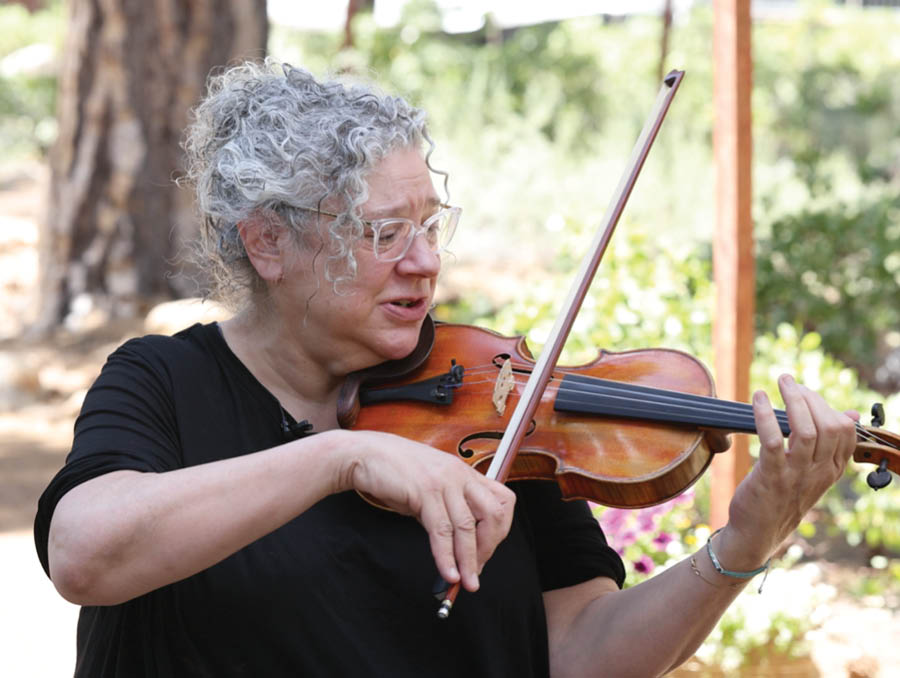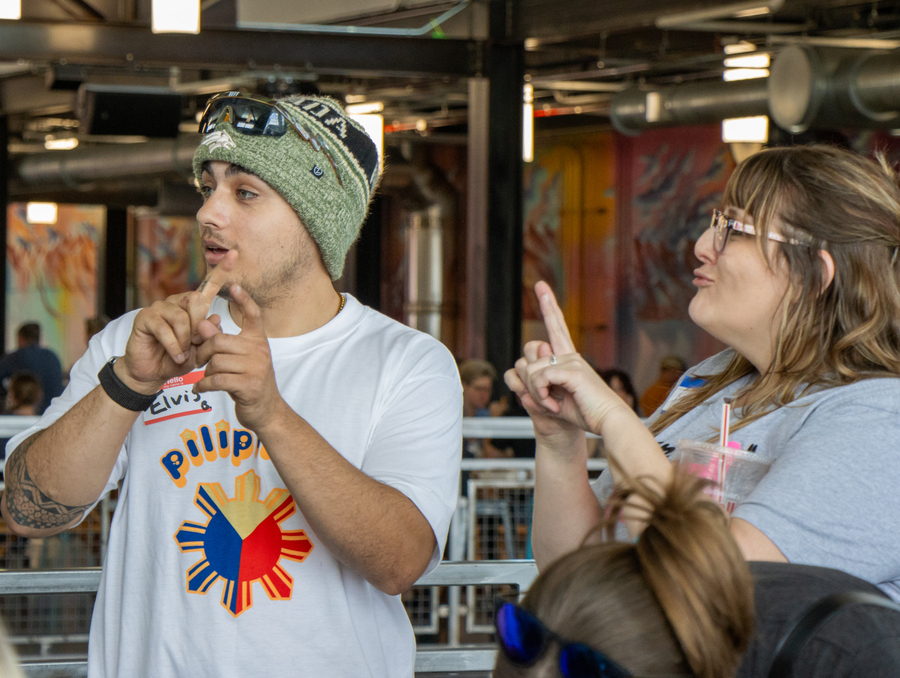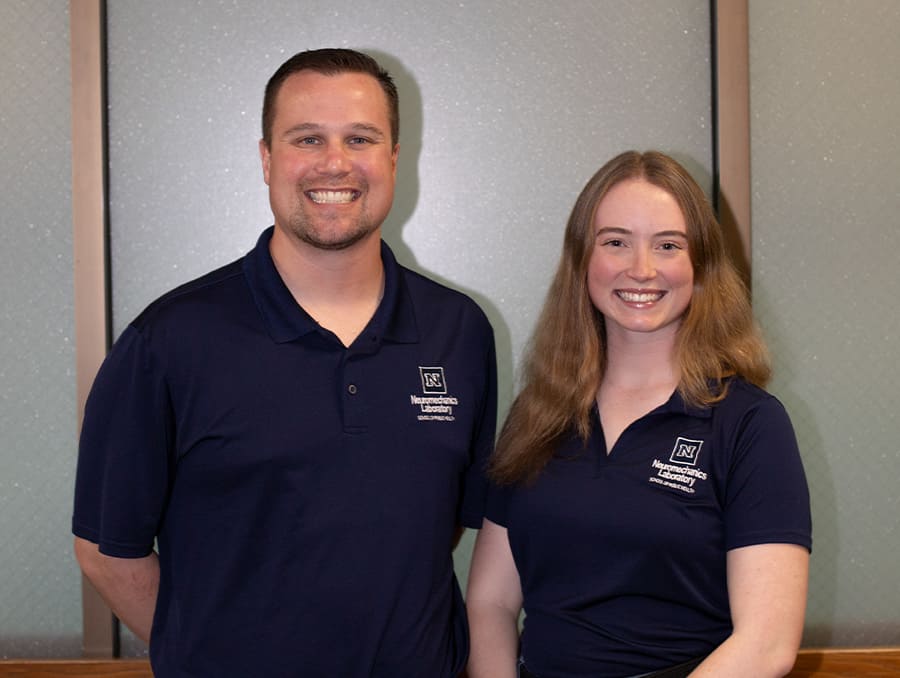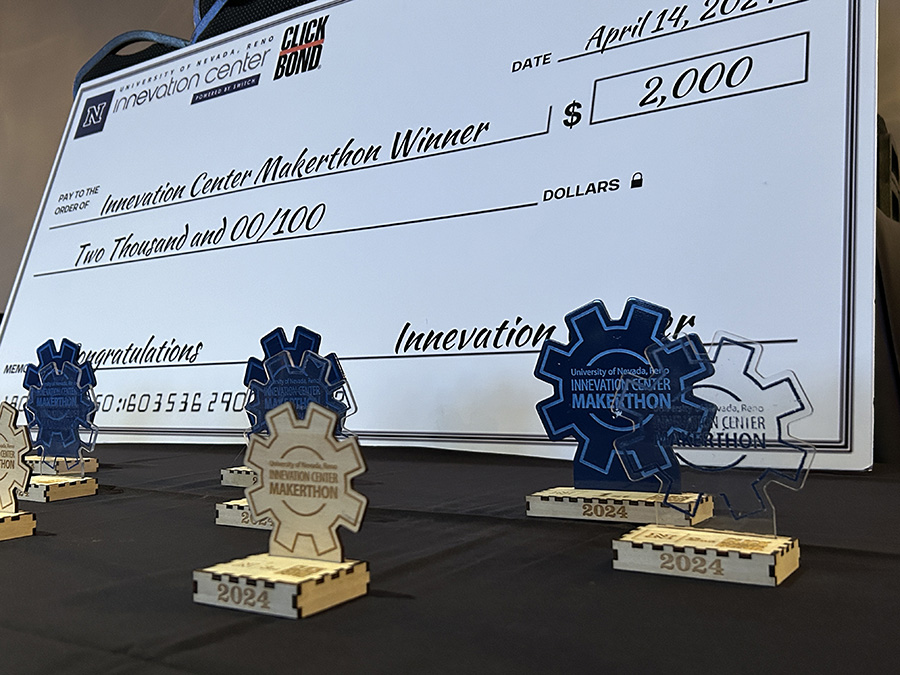University of Nevada, Reno Honors students partnered with the University's English Department and Volunteers of America Reno Family Shelter on Record Street to organize and implement an eight-week long project, "Expressions of Homelessness: Representations through the Arts."
On Thursdays in February and March, English professors from the University volunteered to teach poetry workshops at the shelter, teaching groups of five to 10 shelter residents a new style of poetry each week. All participants received a free journal in which to try their hands at the various styles of poetry they learned.
Alex Ellison, an AmeriCorps VISTA member placed by Nevada Volunteers in the University's Honors Program to help encourage volunteerism and service learning on campus, stated, "We have two goals. The first is to raise awareness of the growing issue of homelessness in our area - to reveal the person behind the stereotype. The second is to empower the residents of the shelter."
In the next couple of weeks, Ellison and faculty members will select poetry written by the residents to show in an exhibit in the DeLaMare Library on campus, 5-8 p.m. on Thursday, April 21. Ellison hopes to display the exhibit in other locations in the community, as well as publish a book with portraits of the poets and copies of their poems.
"We're building a bridge between the campus and the community," Ellison said. "It started as an idea to just teach poetry classes, but it's become a really dynamic project and just keeps growing and growing. The professors enjoyed getting out and volunteering at the shelter. The residents were reluctant to share their work for the exhibit at first, but then they became more confident and empowered, realizing they were good writers."
Residents of all ages attended the workshops, including children as young as three months who accompanied their mothers. The workshops ran for about an hour each week, and included time to discuss a model poem and to write poems based upon the style of the model. The professors taught styles of poets such as Woody Guthrie, Kenneth Koch, Dr. Seuss and Richard Hugo.
Susan Palwick, associate professor of English, centered her workshop on Christopher Smart's "For I Will Consider My Cat Jeoffry," an excerpt from a longer poem, "Jubilate Agno."
"This project was significant to the parents and children at the Record Street family shelter because it gave each of them a way to say, 'Here are my words. Here are my thoughts and feelings. I don't think and feel the same thing anyone else does,'" Palwick said. "The students were so bright and engaged, clearly hungry for ideas and images and the opportunity to create."
Other departments of the University became involved in the project as well. The Black Rock Printing Press at the University will help to format and design the pieces for display, and Spoken Views of Reno, a local group of poets, freestylers, writers, artists and musicians striving to bring awareness and diversity to Reno, will perform at the exhibit opening.
University senior Arielle Murphy and sophomore Jennice Rodriguez worked with the Foundation Professor of Art in Photography and Videography Peter Goin to take photos for the project.
"Our job is to document the workshops," Rodriguez said. "We've been taking photos of the homeless, the teachers and the volunteers, adding a visual and artistic element to the project."
"I took portraiture of people who attended the poetry class at the shelter," Murphy said. "Meeting with and photographing my friends at the shelter caused me to open my eyes to every person around me, and lose any preconceived notions I may have had before."
The residents of the shelter were not the only people to learn from the project. The students and professors involved also walked away with new perspectives and revelations about the community.
"It's very humbling and super impacting at the same time," Rodriguez said. "We aren't the only ones who matter here. Empowering the homeless is important. The writing, visual and artistic elements are helping them learn how to use creative energy. This is their project. It's more about them than me."
Palwick agreed.
"Writing poetry reminds both teachers and students - and, I hope, the wider community - what we have in common," she said. "We all hunger, thirst, fear, love and hope. We all need shelter. We all yearn for safety. Those experiences are universal; the ways in which we express them are unique."











